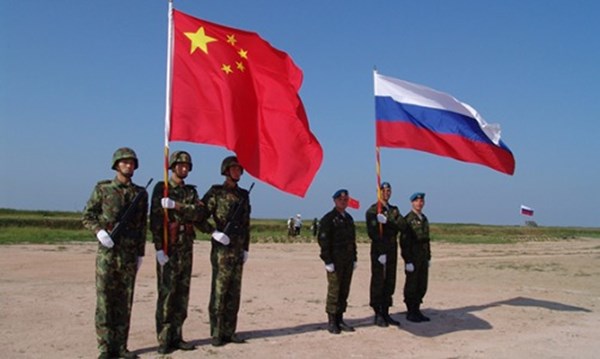China rejects Russia’s call to jointly respond to U.S. sanctions
Russian Foreign Minister Sergey Lavrov's trip to China, which took place at the moment when the United States began to prepare new packages of tough sanctions against Russia, seems to have ended without the desired result.
Although Lavrov posed for the protocol photos in the mask FCKNG QRNTN and accompanied his visit with abundant anti-Western rhetoric, accusing the U.S. of stupidity and inability to conduct diplomacy and at the same time praising the power and political influence of China, he failed to agree with his Chinese counterpart Wang Yi to jointly fight back Washington's sanctions.
Starting his visit, Lavrov explicitly stated that he pursues such a goal. Moscow would like to "form the broadest possible coalition of countries opposed to unilateral sanctions," the Russian Foreign Minister said in an interview with Chinese media.
"Sanctions bring Russia and China closer together. Because Washington seeks to limit the technological development of the two countries, it is necessary to strengthen their independence," he argued.
In particular, Lavrov suggested, "we need to move away from using Western-controlled international payment systems."
"We need to reduce sanctions risks by strengthening our technological independence, by moving to payments in national currencies and in other world currencies, alternative to the dollar," the minister said.
A week later, after returning to Moscow, Lavrov stated that Russia and China would not take joint actions in response to Western sanctions.
"I don't think we will synchronize our responses to the sanctions ,” Lavrov said in an interview with the program "Big Game" on the TV Channel Rossiya 1. He added that there is no military alliance between Russia and China.
"Our relations with China are very different than the relations of the classical military alliance. Maybe they are even closer in a certain sense," Lavrov said.
The Chinese Central Bank unequivocally responded to the proposal to abandon SWIFT, and during Lavrov’s visit on March 24, announced the expansion of cooperation with the payment system.
The joint venture, opened by SWIFT and four Chinese banks, will begin providing services inside China, the Chinese Central Bank said, adding that it would make cross-border payments more stable and secure.
Lavrov also gave no mention of China's possible investments in Russia, which the Kremlin has been waiting in vain since the annexation of Crimea and the collapse of relations with the West.
According to the Russian Central Bank, the volume of direct investments from China as of October 2020 amounted to a paltry $1.8 billion, or 0.4% of the total foreign investments in the real sector of the Russian economy. Compared to 2014, this amount fell by 2.3 times.
China has chosen Iran as a target for investment and source of cheap raw materials, signing a $400 billion cooperation and investment agreement last week.
In exchange for investments in oil production, industry and telecommunications, Beijing expects to receive Iranian oil with significant discounts.
